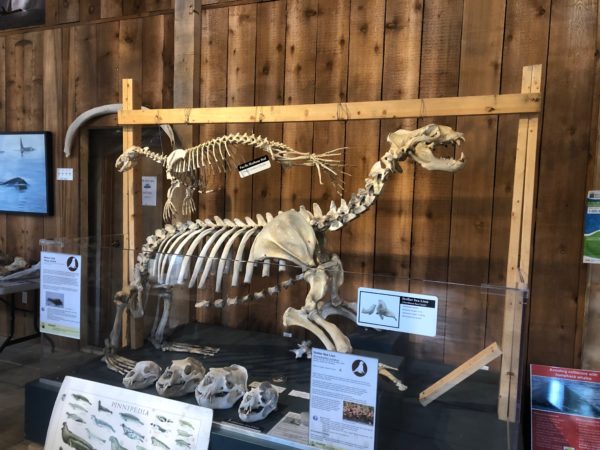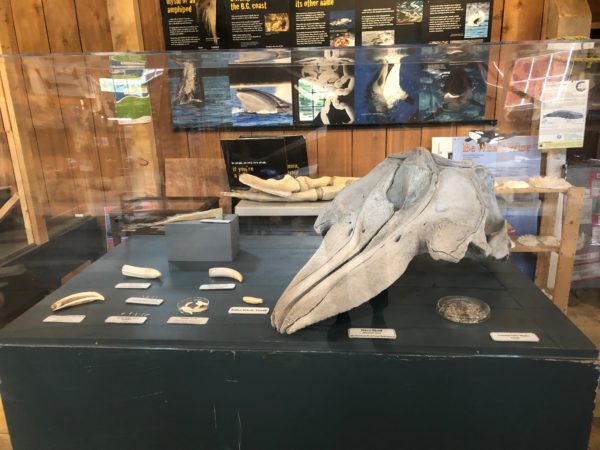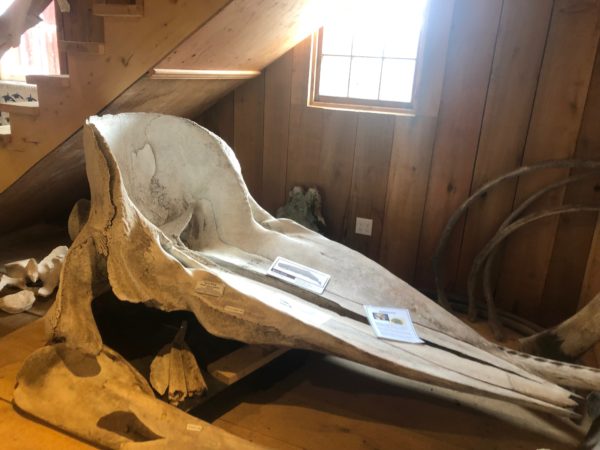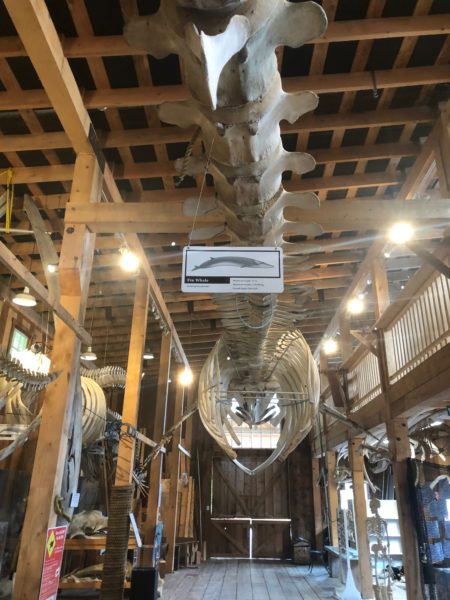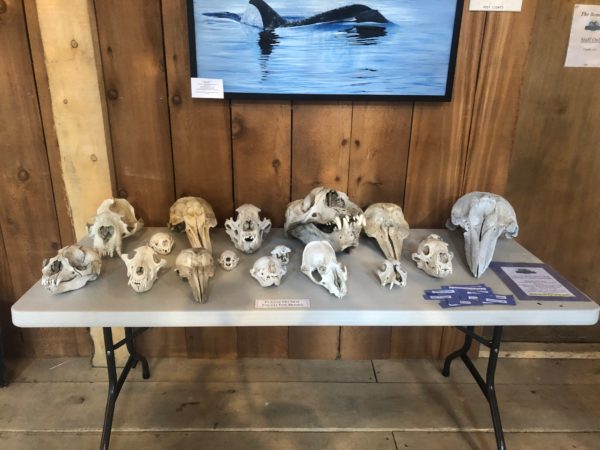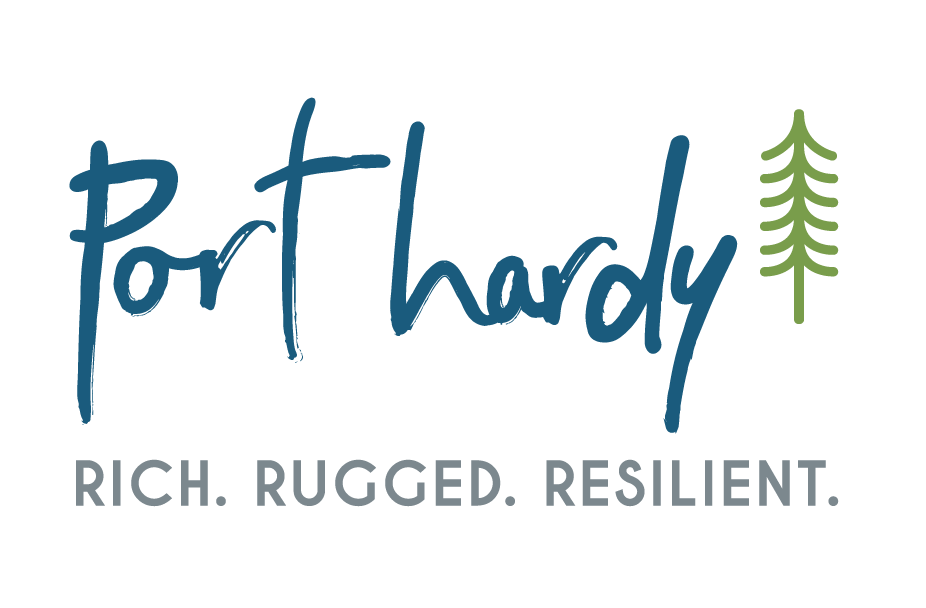I had the pleasure of interviewing an interpreter at the Whale Interpretive Centre in Telegraph Cove. Meet Gillian Holmes who is spending her fourth summer at the museum.
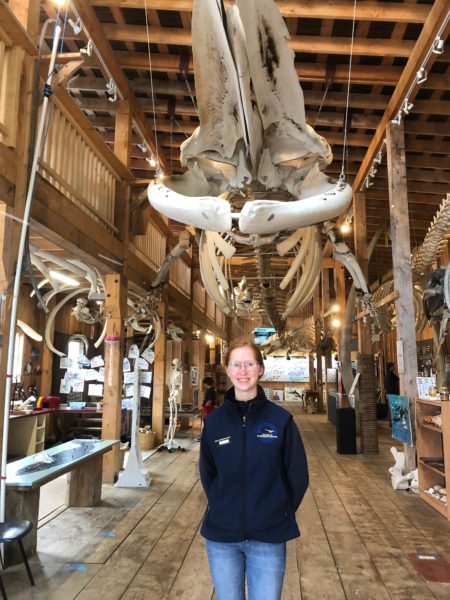
Can you tell me a little bit about the Whale Interpretive Centre?
It’s an education centre all about marine mammals, mostly local species but also just marine mammals in general. It opened in 2002, started initially as a education centre for the Robson Bight Ecological Reserve, which is where killer whales go to rub on the beach. It’s grown to include marine mammals in general.
What is your favorite part about working at the Whale Interpretive Centre?
I like having the opportunity to talk to people from all over the world to teach them about the fantastic animals that are in the area and to have the chance to teach them something new.
Why is it so important we care about our sea life such as whales?
If we don’t care about the local species we’re not going to do anything to save them. We’re not necessarily going to be as interested in preserving the behaviors we see here or the unique environments. If we care about it we’re going to work to preserve it.
What is your favorite thing to get asked by visitors?
It’s when people come in with either a piece of bone or a photo of something and they don’t know what it is and I like walking them through the identification process. I like involving them in the process rather than just telling them what it is.
If a visitor approached, wondering about the safety procedures when on a boat with whales in the waters around, what would you tell them?
I’d tell them the regulations, 100 metres from most marine mammals, but for killer whales it’s 200m and for southern resident killer whales it’s 400m. I’d also tell them that common sense is a big factor here. Don’t run up and park yourself in front of them.
How old is the oldest bone in here? What’s it’s story?
I think the oldest is probably the blue whale jaw bones, those came from the Coal Harbour Whaling Station, closed in 1967, in their 19 years of operation they took over 1000 whales and so these ones were donated to the Centre.
What’s your favorite artifact in the Whale Interpretive Centre?
I really love the Minke skeleton but also the big killer whale skeleton is certainly beautiful, that’s one of our newest specimens. It’s really interesting to compare the size of that one to the younger killer whale we had before.
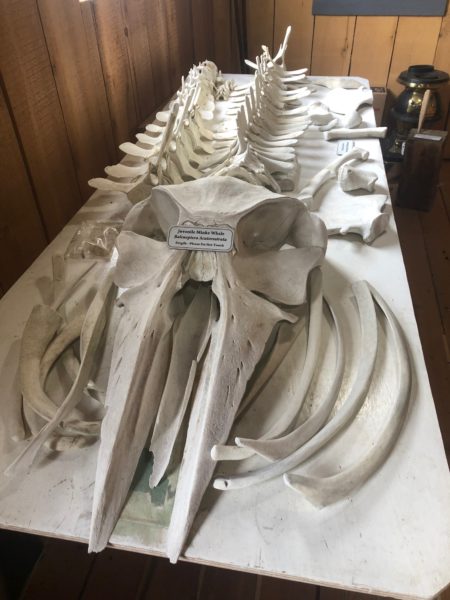

Can you tell me how we can all be more “whale aware”?
Whats important when you’re out on the water is just keeping a close watch. If you spend some time up here you’ll here the phrase “if you see a blow go slow.” This is really important for the killer whales and dolphins and porpoises that we have around here, they have echolocation so they’re pretty aware of what’s going on around them. The bigger whales like the humpbacks and the minkes are not necessarily so aware without that echolocation, so they may not know a boat is coming towards them. It’s important to be cautious of what’s in the area.
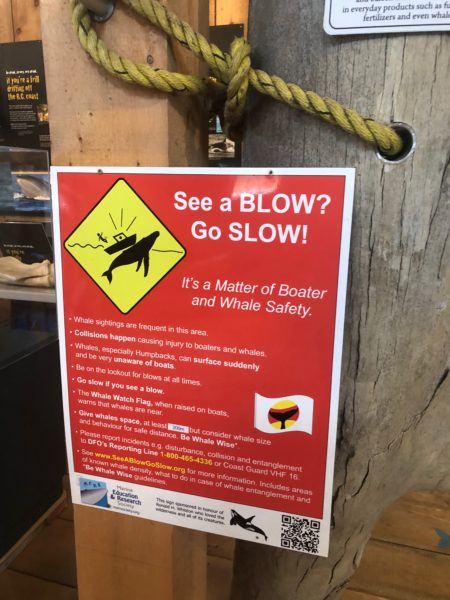
Why do you think whales like being in the Queen Charlotte Strait?
I think it’s a good opportunity to get a lot of food. There’s historically been a lot of salmon here, which is why we see so many of the northern resident killer whales. There’s also a lot of juvenile herring which is good for the humpbacks. It’s just a lot of food in a nutrient rich area, it’s a good ecosystem for them.
Why is underwater noise such a problem for sea life?
While underwater noise doesn’t necessarily directly affect their health, it just adds a lot of stress to their everyday life. For killer whales especially who are really interacting with each other and communicating with each other it adds a damper and how they can communicate. If you’re looking to buy a house you’re not necessarily going to settle in right next to a highway where it’s going to be loud at all hours of the day or search out a construction site. That would add a lot of stress to your life just like underwater noise does to our killer whales.
What else do you think we should know?
I think as long as people continue to care about these animals that there is certainly hope to really make a difference for the animals that are starting to struggle. As long as people continue to care we can still keep working towards a solution.
If you have the time I highly suggest going out to Telegraph Cove and checking out the Whale Interpretive Centre, be sure to say hi to Gillian!
Check out these photos from the Whale Interpretive Centre:
